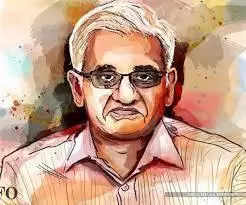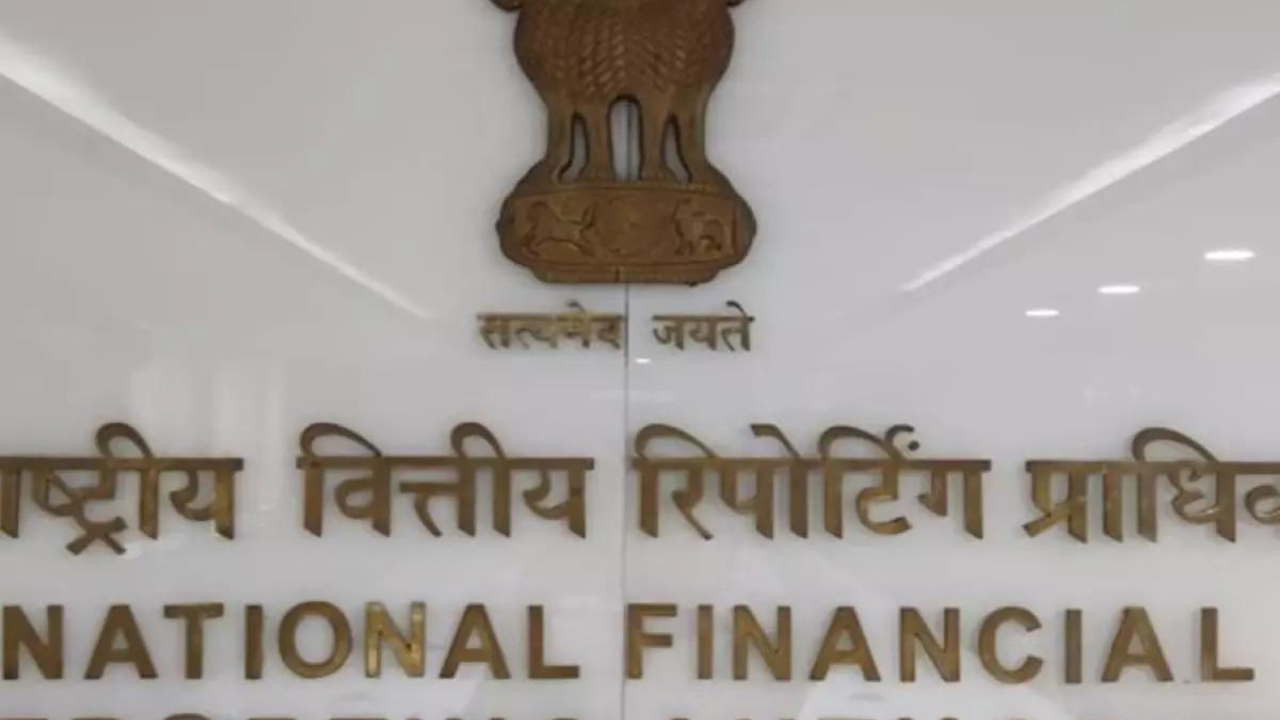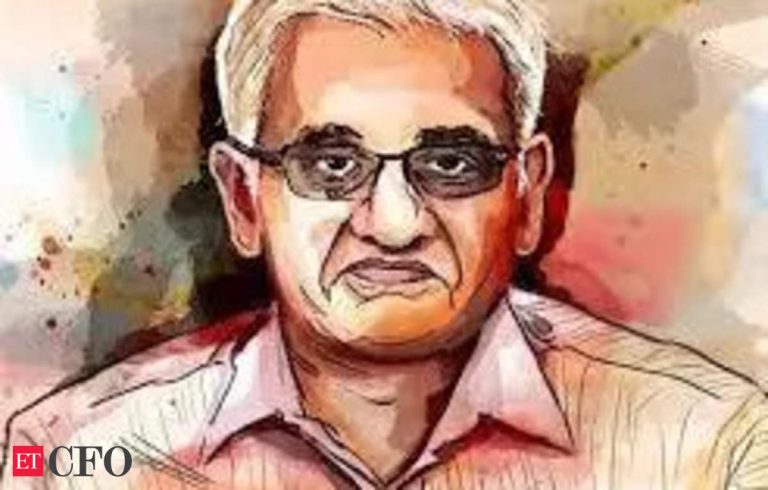
Rangachari Sridharan, the former and first chairman of the National Financial Reporting Authority (NFRA), has praised the recent Delhi High Court judgment upholding the body’s powers and procedures, while also offering valuable insights into the ruling’s implications for India’s auditing sector.
In an exclusive conversation with ETCFO following the judgment, Sridharan welcomed the court’s decisions, particularly on crucial aspects like the authority’s power to investigate audit reports prior to 2018 and the use of a summary inquiry process based solely on audit files. However, he also discussed the ongoing legal challenges, including a petition filed by the NFRA in the Supreme Court seeking a stay on certain portions of the ruling.
Delhi High Court Ruling Clarifies NFRA’s Powers
The Delhi High Court’s ruling on February 7, 2025, upheld several key provisions of NFRA’s role in regulating auditors and audit firms in India. Sridharan noted that one of the most important aspects of the judgment was the confirmation that the NFRA could proceed with inquiries into audit reports dating back to before 2018, ensuring that the passage of time does not limit the regulatory body’s authority.
The court made it clear that NFRA’s powers are not constrained by the age of the audit report. This is a significant step in ensuring accountability in the auditing profession and reinforcing the authority of the NFRARangachari Sridharan, the former and first chairman of the National Financial Reporting Authority (NFRA),
Another key takeaway from the ruling was the court’s endorsement of the summary inquiry procedure, which is based entirely on the audit file and excludes the need for additional testimonies or cross-examinations. This change, according to Sridharan, will make the regulatory process faster and more efficient.
Supreme Court Appeal on Show-Cause Notices
Despite the High Court’s favourable ruling, the NFRA’s legal battle is far from over. The Supreme Court recently sought a response from the Ministry of Corporate Affairs (MCA) and other parties regarding NFRA’s appeal against the High Court’s decision, which quashed its show-cause notices to auditors and chartered accountancy firms, including Deloitte Haskins & Sellers LLP, for certain procedural violations.

The Supreme Court issued a notice to the government and the auditor Snehal Mazoomdar & Co., while clarifying that the NFRA could proceed with disciplinary proceedings but could not pass final orders until the matter was further heard. The Court’s bench, led by Chief Justice Sanjiv Khanna, pointed out that while the High Court judgment could not be stayed immediately, it acknowledged the seriousness of the issue at hand.
Solicitor General Tushar Mehta, representing NFRA, argued that the High Court’s ruling had “wide ramifications” that could affect a significant number of ongoing disciplinary proceedings, including those related to high-profile fraud cases involving listed companies and large sums of public money. Mehta emphasized that NFRA’s current structure, with its composite body, made it impossible to separate the processes of audit review and disciplinary action.
High Court’s Position on Separation of Functions
The Delhi High Court’s ruling had specifically addressed the issue of conflict of interest within the NFRA’s functioning. The Court found that the same body conducting both the audit review and disciplinary proceedings could lead to a lack of objectivity. It emphasized the need for NFRA to maintain separate divisions for audit quality reviews and for initiating disciplinary proceedings under the Companies Act, 2013.
The Court clarified that the decision to initiate disciplinary action should be made independently by a different set of NFRA members who were not involved in the audit review process. This move was aimed at ensuring the transparency and impartiality of the regulatory process.
Sridharan Defends NFRA’s Regulatory Approach
In response to concerns raised about the dual role played by NFRA, Sridharan defended the regulator’s approach. He explained that when he was leading the NFRA with only two members, it was not feasible to have separate divisions due to logistical constraints.
There was no way for us to set up separate divisions for processing audit quality reports and issuing show-cause notices at the time. We had only two members, and that made such a division impossibleSridharan explained
He added that despite this, NFRA’s process remained fair and impartial as it relied solely on the audit files for evidence.
‘A Regulator Must Be Respected by Users and Feared by Audit Firms to Ensure Accountability’
Sridharan further stressed the importance of a robust regulatory body in maintaining the credibility of India’s auditing profession.
A regulator must be respected by the users of financial statements and feared by the audit firms it regulates. A soft approach will only lead to a lack of accountabilitySridharan said.
“I’m not sure about what the thinking in the government is like, and I wouldn’t like to comment on that,” Sridharan continued. “But as far as the action taken by NFRA is concerned, in my own view, they cannot by any standard be said to be very harsh or anything. They are, in fact, only going to establish the credibility of auditing in India and increase its credibility, rather than affecting growth in any manner. I think that’s a completely misplaced reading or misreading of the situation, because all over the world, in fact, the inspection reports of NFRA have brought out many shortcomings, even in the audits of the big auditing companies.”
Sridharan emphasised that regulatory bodies must not adopt a “soft” approach to enforcement.
In my personal opinion, I think NFRA should be even more diligent in following through on whatever their own inspection reports have disclosed. Many of those cases you see, ultimately, in my opinion, the question of professional misconduct is not something that will be solved by resorting to what is called moral suasion. You don’t tell people good words and expect them to improve. Ultimately, a regulator is meant to regulateHe said,
To further underline his point, Sridharan referenced the Kingman report, which criticised the UK’s Financial Reporting Council for its ineffective regulatory approach. He quoted a key remark from the report: “The regulator should be respected by the users of financial statements and feared by the audit firms which it regulates. If you have a regulator that adopts a very soft attitude, then the regulator might as well be shut down. There is no need to have such a regulator. Regulators should be strict—absolutely. And regulators should be for the investors and the general public.”
Looking Ahead: What’s Next for NFRA and the Auditing Sector?
As the Supreme Court prepares to hear the appeal in late April, the outcome will likely have a lasting impact on the structure and effectiveness of NFRA’s operations. Sridharan expressed confidence that NFRA will continue to play a critical role in ensuring the integrity of India’s auditing practices, even if some aspects of the High Court’s ruling are ultimately upheld.
“So, even if, for some reason, that portion of the Delhi High Court order is upheld by the Supreme Court, I don’t know whether that will happen or not. That’s something you’ll have to wait and see. Even if that happens, the situation is not lost. It will still be open to the current NFRA, society, or whoever succeeds, to restart the case from that point and continue with it.”







